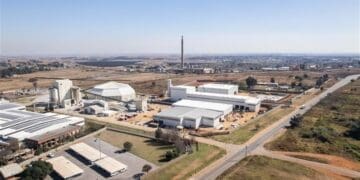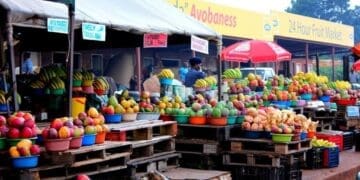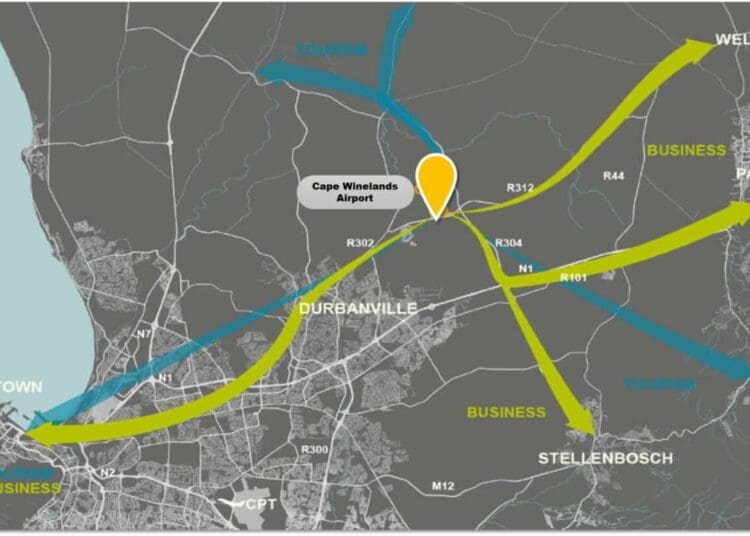Plans for the new Cape Winelands International Airport (CWA) have reignited debate about whether Cape Town needs a second international airport – but for many small businesses the development represents more than just additional runways and terminals. It could determine whether tourism growth translates into meaningful opportunities for local entrepreneurs.
According to Deon Cloete, Managing Director of Cape Winelands Airport, the project is about preparing for the Western Cape’s long-term future.
“Airports have 20- to 30-year planning horizons, and Cape Town must start preparing for its future growth today. The Cape Winelands Airport is strategically located to unlock new economic and tourism nodes across Stellenbosch, Drakenstein, Witzenberg, and Breede Valley,” Cloete said.
The R8-billion development includes a 3,500m runway, a new passenger terminal, cargo facilities, a hotel, and a plaza. Forecasts project 2 million passengers by 2030, rising to over 5 million by 2050.
Cloete also stressed sustainability through the airport’s GreenSkies programme, which aims to limit environmental impact while supporting the aviation sector’s Net Zero 2050 goals.
For local operators, the airport’s success hinges on how much it involves SMEs. Leonard Botha, founder of African Sun Tours, said the project could be transformative if inclusivity is prioritised from the start.
“The new airport will allow more guests to visit Cape Town and South Africa, which could translate into real growth for SMMEs like us. However, for this project to reach its full potential, the Cape Winelands Airport company must make a strong commitment to supporting SMEs; otherwise, it will become another vehicle that only benefits the elite and well-connected,” he said.
Botha called for smaller operators to be included in the airport’s supply chain, from concierge services and shuttles to hotel staff and hospitality offerings.
“If companies such as African Sun Tours, which focus on local communities, are given a place within the value chain, the airport will directly help drive job creation and ensure inclusive growth,” he added.
Nareadi Moswane, director of Mogomana Travels, agreed, highlighting the marketing power of the airport’s name.
“The name Cape Winelands is a brand on its own; it is globally associated with world-class wine. That visibility is a boon for the entire tourism sector,” she told Vutivi Business News.
She also pointed to broader benefits.
“New airports are more than just infrastructure; they create economic ecosystems. SMMEs can thrive if they are not just treated as subcontractors but as long-term partners, with support across finance, skills, market access, and policy,” Moswane said.
Cloete said the airport is committed to ensuring that the surrounding communities and businesses benefit directly. “Airports are catalysts for economic activity, but their true value comes when local communities and businesses are direct beneficiaries. That is what we are working towards at Cape Winelands Airport,” he noted.
With projections of more than 58,000 jobs created during operations, the Cape Winelands Airport could become one of the most significant infrastructure projects in the Western Cape.
For entrepreneurs like Botha and Moswane, the hope is that it grows into more than a hub for flights, but a gateway to inclusive and sustainable opportunities for local businesses.


























































